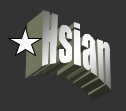By the end of June we had 30 combat missions in and we were planning a
special long-range mission. Intelligence reports had reached us,
informing us that the Japanese had an advanced pilot training school
teaching night flying techniques -- maybe even training night
fighters. The school as in Peping (now Beijing), 600 miles
northeast of Hsian. This was way past the operating limits of the
P-61, but we would carry two fuel tanks externally and, if we used fuel
economically coming and going, we could make it with some to spare.
We were working out a plan to possibly intercept and attack these
Japanese night training flights when we received orders on June 22nd
that read in part:
"You
are relieved from further assignment and duty with your present
organization and are attached unassigned to Replacement Depot No. 2,
APT 496, and you will proceed from your present station by first
available air, rail, and/or motor transportation to APO 496, reporting
on arrival to the Commanding Officers, Replacement Depot, No. 2,
thereat for processing and for first available water transportation to
the United States."
These were the rotation orders we had been so anxious to receive.
Hershorn, Foster and some others and I went to town for a celebration
that seemed called for. During the course of events, I remember a
rickshaw race with us pulling the rickshaws. I remember riding a
pony that kept bucking me off, rodeo style. I have a photo of the
celebrants all holding bottles of Shang-Fang, a Chinese beverage we
were acquainted with.
The next few days were taking up with departure details. Foster
and Hershorn were designated as temporary "D" flight leaders and we
were checking our equipment back into quartermaster, all the time
thinking about our passing up the mission to Beijing, when we were
summoned to report to Col. Coleman. When we arrived, we found
that the colonel had seven or eight other people in his office, all in
uniform. There were two pilots, a navigator, and some others who
weren't wearing any rank or insignia. After introductions, the
colonel asked if Ab and I had "Top Secret" clearance, which I had, but
Ab didn't. There was some discussion about Ab's deficiency, but
it was decided that he was not a security risk, and Col. Coleman
proceeded to acquaint us with an OSS plan to take out the Yellow River
Bridge. The colonel first asked if we would consider volunteering
to fly two additional missions -- one as pathfinder and one as
diversionary. The city of Xinxiang was to be involved. The
colonel had approached us because we had flown many times to Xinxiang,
both night and day missions. We knew the city well. None of
our squadron mates had even been there more than once.
We didn't know exactly what we were getting into, but the Japanese had
successfully defended the bridge against the 14th Air Force's best
effort to destroy it, and if the OSS could indeed take it out, we
wanted to help. So we did what should never be done in the
military -- we volunteered -- and with orders to go home folded up in
my wallet in my hip pocket. I thought, "What a fool I am!"
We then learned that the plan involved dropping a three-man OSS team
together with their equipment and supplies into a walled compound about
100 yards square in the heart of the city. A very nervy
undertaking. The drop would be carried out unobserved within this
Japanese-held city by first having us fly a mission as pathfinders to
pinpoint the target compound for the pilots of the two C-47 drop
aircrafts. Then, on a subsequent night, we were to fly a second
mission to carry out a diversionary attack in the marshalling yards
nearby, while the two C-47s glided in without power to silently drop
the OSS team and their gear. We couldn't discuss the missions
with any of our squadron people, who thought we were absolutely nuts to
fly any more combat missions.
